- Home
- Jeff Mariotte
Blood Quantum Page 11
Blood Quantum Read online
Page 11
"It's a complicated thing, all right," Nick said. "Seems going by parentage would be easier. If your dad or your mom, depending on if the tribe is matrilineal or patrilineal, was a member, then you are."
Aguirre turned around in his seat and glanced at Nick. "Then what happens if my tribe goes by the mother, but your father's goes by him? Do you belong to both? Or what if you're in a patrilineal tribe, but your mother married into it, moved to the reservation years before you were born, and you've never lived anywhere else or considered yourself a part of any other tribe? It's not so bad if the rules are consistent for generations, because then at least people know what to expect. But when a tribal commission can change them in midstream, then people get messed up."
A snake slithered across the road, pink as a heavy-duty garden hose. Aguirre was watching the road again, which Nick appreciated, considering the sheer number of rabbits, ground squirrels, birds, and other creatures that kept darting into the road. "Some think the line should be cultural, not connected to bloodlines at all. What matters most is how well someone has assimilated the values of the people, not how much of any type of blood they have. Do they speak the language? Do they participate in traditional tribal activities? That's hard to measure, too, but it hurts to see someone raised as white, identified as white, who can claim membership with a piece of paper, when you're fully native but you're knocked out by some intertribal marriage way in the past."
"So… this guy you're taking us to see," Brass said, bringing them back around to the subject of Robert Domingo's murder. "What's his story?'
"Calvin Tom," Aguirre said. "He's exactly the kind of case I'm talking about."
"How so?" Nick asked.
"Calvin is part Grey Rock Paiute and part Navajo. That's not an uncommon mix around here. He was raised on the rez and always considered himself Grey Rock. His mom was almost full Grey Rock and had divorced his dad when he was very young. So all the family he knew was here. He never even met his daddy's people. As a young man, he moved away for a few years, worked in Los Angeles for a time, then I think Seattle. Recently, he came back here, to the place he had always thought of as home. When he got here, the whole membership thing was going on. He applied for membership, but he was turned down."
"I bet he wasn't happy about that," Nick said.
"Not a bit. He bitched and moaned, you know. He complained to Domingo, then threatened him."
"Anybody take his threats seriously?" Brass asked.
"They didn't sound serious, according to witnesses. I mean, he was pissed off, no question. But it was all that 'I'm gonna freakin' kill you, Domingo!' stuff. Every cop hears that crap. I'm sure you hear it every day. If we tried to intercede every time someone said he was going to kill somebody else, that's all we'd do."
"Except in this case, somebody did," Brass said.
Aguirre cranked the wheel hard to the right, and the Jeep shot around a corner, fishtailing a little. If he always drives like this, Nick thought, it's a wonder there are enough people left on the reservation to make the membership rolls a problem.
"Somebody did," Aguirre echoed. "And that is why we're going to visit Calvin Tom."
Tom's place was up a little hill, set well back from the road. A couple of scrawny dogs sprawled in the shade of a broken-down, rust-scaled pickup truck outside. The home itself was a double-wide trailer, blue with brown trim, listing to the left where some of the cinder blocks propping it up had started to crumble under its weight. The whole property looked as if a stiff wind could blow it into the next state. "I'm not saying it's a bad place to grow up. I love it here, wouldn't trade it for anything. But like I said," Aguirre reminded them quietly as he parked, "there's a lot of poverty on the rez. You okay with that?"
"I wish it was different," Nick said. "But we're here to investigate a murder. It doesn't matter to me if the people we're talking to are rich as kings or poor as dirt."
Aguirre chuckled. "I'll try to line up a few of those rich suspects," he said, stepping out into the sun and blinking. "Till then, we're gonna have to go with poor."
Nick and Brass followed the tribal cop to the door. One of the dogs perked up and followed their progress with ears raised, while the other just snoozed. Aguirre banged loudly enough to wake someone three houses over. "Calvin doesn't hear so good. Screwed up his ears working construction."
Heavy footsteps sounded behind the door, the floor groaned, and Nick was afraid for an instant that the whole structure would tip over. Then the door swung open. "Yeah?"
"Hey, Calvin," Aguirre said, at a level just this side of a shout. "You doing okay?"
"Fine," Calvin said. He was a big guy, six-five or six-six, almost as broad as the whole doorway. Compared with him, even Richie Aguirre looked petite. He eyed the Las Vegas police through eyes narrowed with naked suspicion. "What do you want?"
"These guys are cops from the city," Aguirre replied. "They have some questions for you."
"I'm Captain Jim Brass, LVPD," Brass said. "Did you kill Robert Domingo?"
"Huh?" Calvin asked.
Brass repeated the question, louder. Calvin Tom cocked his big head toward Brass, then answered him with a sorrowful expression. "I wish I did."
"That right?"
'Yeah. I hate that bastard."
"But you didn't kill him?"
"I just said no, didn't I?"
"That's right, you did. You ever been to his house in the city?"
"I didn't know he had one."
"Where were you last night? Say, from midnight to two a.m.?"
"I was drunk," Tom said. He hadn't had to ponder the question for long.
"Drunk?"
Calvin Tom tugged at the hairs of his left eye brow, already so thin it almost appeared plucked. His cheeks and chin were so smooth that Nick wondered if he had to shave more than twice a week. "I got some drinks at a bar in the city. On the way home, I got sleepy, so I pulled over by the road. That's why my truck isn't here.'
"I'm not following. Why isn't your truck here?" Brass asked.
"A cop brought me home."
Brass met Aguirre's gaze. "Okay, Mr. Tom. Thanks for your time." He turned away from the door and started back toward the Jeep.
"Thanks, Calvin," Aguirre said. "You stay out of trouble now."
"Okay." Calvin Tom slammed his door hard enough to rock the trailer.
"That's it?" Nick asked angrily as they climbed back into the Jeep. "'You didn't do it, did you?' That's how a captain does things?"
"Did you get a load of his feet, Nicky?" Brass asked.
Nick was almost embarrassed to answer. "I, uh, I was still kind of stunned by the rest of him."
"I'm talking Shaquille O'Neal feet. You could raft across Lake Mead in one of his shoes. The footprints you found at the house were, what, eight and a half?"
"Yeah," Nick said. "But that doesn't mean -"
"Sometimes you gotta go with your gut," Brass said. "Mine tells me that if that guy wanted to kill Domingo, he would have squeezed him between his paws until he popped. He wouldn't hit him with something like a cigarette lighter."
"You're probably right about that," Aguirre said. He started the engine and backed away, watching for the dogs the whole time so he didn't run into them. "I remember this one football game when we were in high school. Calvin accidentally made an interception. Nobody passed to him, because he just wasn't that good, but he happened to be standing between the other quarterback and his receiver, and he was like this wall. The ball just fell against him, and he got his hands on it. He started for the end zone, and by the time he got there, I think there were six or seven guys hanging off him. They looked like Christmas ornaments on a tree."
"Still…" Nick said. "Can you check on his story? About a cop bringing him home?"
"Sure." Aguirre said. "Nothing to it. I figured maybe that's what happened when we got there and I didn't see his truck."
"That happens a lot around here?"
"Yeah, once in a while. We don't mind giving
people a ride if it's not too busy. Calvin's a big man, but when it comes to drinking, he's a lightweight."
"Tell you what. Nick," Brass said. "If we turn up some physical evidence connecting Calvin to the scene, we can come back here and pick him up. It's not like the guy can hide, right? I think you can see him from space."
13
Because the paper scraps found in the John Doe's pockets and tent were so numerous, Catherine had called in forensic document examiner Professor Rambar to assist Ronnie Litra, the lab's night-shift Questioned Documents tech, along with the day-shift tech, to try to find out if anything in all of those pieces of paper pointed to the dead man's identity.
The review hadn't been completed yet – Catherine thought it could take days, if not weeks – but progress had been made, and now Rambar had come to Catherine's office to summarize their findings so far. Rambar was a distinguished-looking gentleman, with thinning gray hair, a goatee, and thin glasses. He sat with his spine erect, right leg crossing the left at the knee, his fingers interlaced on his lap. Greg was there as well, leaning against a tiling cabinet, listening intently.
"I appreciate you coming in on such short notice," Catherine began.
"I'm just happy that I was available," Rambar said. "I wouldn't have wanted to miss this for anything."
"That good?"
"That… let's just say interesting. It's not every day one comes across such a trove of documents. All in all, these appear to illuminate what seems to be a very disturbed man."
"Disturbed how?" Catherine asked.
"That's a question for a psycholinguistics expert, which I can't profess to be," Rambar replied. "You could feed these documents – or a transcription of them, anyway, since it would never be able to read them as they are – into a computer and no doubt learn much more about the man who wrote them. I'm afraid I can't tell you a whole lot about him; I can only address the documents themselves."
Greg knew that in the trade, a note jotted on a crushed toilet-paper tube was still considered a document, but even so, it sounded odd to his ears to hear those bits of random paper described that way. They looked more like trash than documents – the word seemed to give them more importance than they deserved. But then again, maybe not – maybe somewhere in them was the clue that would crack the case. He'd had to find them, photograph them, and bag them in huge plastic trash bags, and he was glad that interpreting them was someone else's responsibility.
"I understand," Catherine said. "What can you tell us about them?"
"First, and perhaps most significant, virtually all of them were written by the same person. Over a period of years but definitely the same hand. I checked overall form, line features, format, to the extent that I could, and the consistency is undeniable. There are changes, of course – most handwriting changes a little, month to month and year to year. But there are also enough markers that don't change that we can tell when the same author writes two separate notes even a decade apart.
"It was harder to get a sense of content, because the sentences themselves are often disjointed, or portions are missing, torn off, or what have you. Plus, as you know, much of it was obliterated by overwriting, even charring in many cases. Still, I can tell you that the author is a male, most likely older than twenty and younger than forty. As I said, the notes themselves were written over time, so I can't narrow down the age range much more than that."
"How can you read the writing that's covered by other writing or burned?" Greg had seen it done, but he still marveled at the fact that seemingly impossible-to-read text could be deciphered.
"We can't always," Rambar admitted. "Sometimes the best we can do is to establish that something has been altered or removed. Erasure through scraping or actually eliminating layers of paper will leave rough patches, and if someone tries writing over those patches with ink, the ink will usually spread more than it would have on the original paper. Chemical erasures leave stains that can be elected through infrared luminescence, oblique lighting, and so on.
"The difficulty here," he went on, warming to his material, "was that we had overwriting – probably not deliberately obscuring the original text but simply the result of a man of limited means, making notes to himself on paper he had already used, perhaps years before, to make other notes to himself. The result is notes that might have meant something to him but only to him – to us, they simply look like confused scribbling. Again, oblique lighting, alternative light sources such as infrared or ultraviolet, and the use of filters helps, especially in those cases where the color of the layers of writing varies. If he wrote in blue ink over gray pencil, then viewing through a blue filter subtracts the blue, making the gray reasonably legible. Or as legible as this man's handwriting ever is.
"In the reverse case, pencil over ink, the pencil can be erased to reveal the ink below. That destroys the document's usefulness in court, although in this case, if the deceased wrote all of the documents himself and they're not all likely to become part of a court case – or any, since he's already dead – we can certainly do that in order to see what the underwriting says. Of course, your staff and I have made every attempt to preserve the integrity of the original documents. We've been busy photocopying those that are legible on their face and preserving the others in transparent plastic so that we're handling them no more than absolutely necessary."
"Of course," Catherine said. "The most important thing is to find any clues to his identity that they might contain, but we don't want the documents to be destroyed during analysis, if possible."
"Especially given what I had to live through to collect them," Greg added. He still felt as if he could smell the tent's interior, as if subatomic particles of it had become lodged in his nasal membranes. Which, no doubt, they had. More precisely, the chemicals causing the smell would have floated into his nose, binding with the cilia lining his nasal cavity, which would cause a nerve impulse to send the information through the olfactory cell, up the olfactory nerve fiber into the olfactory bulb, and from there to his brain. It would take a while before that all cycled out, but he didn't like thinking about tiny bits of the dead man's belongings living inside his head for any length of time. He turned his attention back to what the professor was saying.
"Yes, well, we try to be careful," Rambar said. "Then, of course, we move on to the more sophisticated techniques. Hyperspectral imaging can create true three-D images of the individual lines, allowing us to differentiate even same-colored inks or the identical ink written at different times. To examine charred documents, we stabilize them first with polyvinyl acetate, to make sure they don't flake apart in our hands – or forceps, more accurately – float them on a solution of glycerin, chloral hydrate. and alcohol, and photograph them. You'd be surprised at how much can show up if you just know the right way to look."
"I'm sure," Greg said.
"At any rate, it turns out that most of the notes are attempts to jog the writer's memory about various things or else written so that he won't forget something. Directions to a shelter or a church serving Thanksgiving meals. The day of the week he had a shower at the Y. 'Rainy today.' That sort of thing. Most of it trivial and not pointing in any obvious manner to the identity of the person who wrote them. You couldn't even go back and trace who got a free Thanksgiving dinner on such and such a date, because even on the rare occasions when he did note a specific date, he didn't write the year."
"So you're telling me that it's all useless to us?" Catherine asked.
"Nothing of the sort," Rambar said. "We've only really just started, as I said. We have a long way to go, but I wanted to tell you where we are so far, since I know there's a certain urgency. And there are a few things that are more intriguing than others, things that show up again and again."
"Such as?" Greg asked.
"Well, one of the things that struck me is a particular set of directions. Judging by the landmarks noted, they seem to lead from open desert into the city, at least to the city's edge. It's very detailed, alth
ough not necessarily the sort of thing one could follow now. 'Left at the gas station,' that sort of thing. What if there are two gas stations close to each other? It doesn't tell you which one. What if it's no longer a gas station? Without a date, you couldn't even go back and determine that there was a gas station in this location at this time."
"Then why do you bring it up?" Catherine asked.
"Because of what we've been able to examine so far, it's the one thing that has been repeated most often. And verbatim, or very nearly so. He wrote it down many, many times, on different pieces of paper, as if to keep it fresh in his mind. The phrasing changes only slightly, and the details are always the same."
"Maybe he was afraid he would lose, or had lost, the other papers," Greg suggested. "And wanted to make sure he had it in enough places that he couldn't lose them all."
"Certainly possible. The main thing is that these directions, for whatever reason, were vitally important to him. To lose them would have been tragic, in some way that I can't yet determine."
"We have to keep in mind, this guy had a bullet in his brain all this time," Catherine said. "That's bound to affect someone's habits and perceptions."
"True," Greg said.
Professor Rambar uncrossed his legs and put his hands on his knees. "I should get back to it," he said. "I'll let you know if we find anything else interesting."
"Thanks, Professor." Catherine watched him stand up and leave her office, then turned to Greg. "What do you make of it?"
"I don't know," Greg said. "I guess if we can determine where in the city those directions lead to, I could try to backtrack it. Find out what it was in the desert that was so important that he needed to keep the directions no matter what."
"It's already been a long shift, Greg. And Professor Rambar said they would be impossible to follow."
"Tell me about it. But he's a documents guy, not a CSI. He doesn't know how often we have to do the impossible. Anyway, we have to figure out who this guy is. And like you said, what if there's some connection between him and the disappearance of Daria Cameron? I'd be glad to take a crack at it, if it's okay with you."

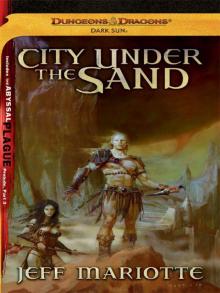 City Under the Sand
City Under the Sand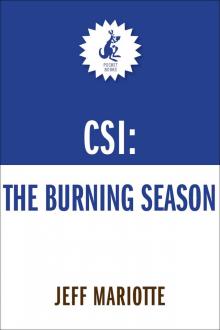 The Burning Season
The Burning Season Sanctuary
Sanctuary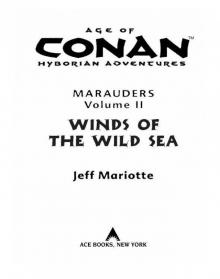 Winds of the Wild Sea
Winds of the Wild Sea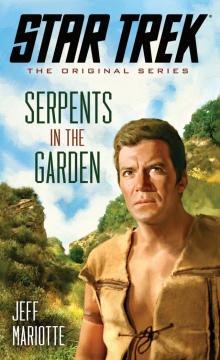 Serpents in the Garden
Serpents in the Garden Close to the Ground
Close to the Ground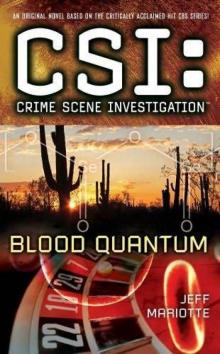 Blood Quantum
Blood Quantum Brass in Pocket
Brass in Pocket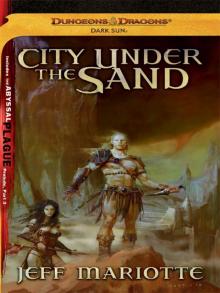 City Under the Sand: A Dark Sun Novel (Dungeons & Dragons: Dark Sun)
City Under the Sand: A Dark Sun Novel (Dungeons & Dragons: Dark Sun)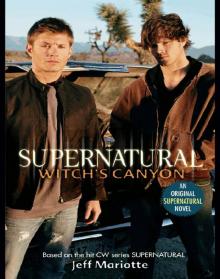 Witch's Canyon
Witch's Canyon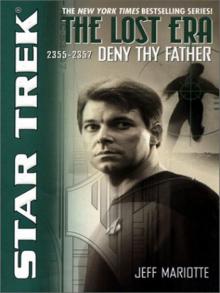 STAR TREK: The Lost Era - 2355-2357 - Deny Thy Father
STAR TREK: The Lost Era - 2355-2357 - Deny Thy Father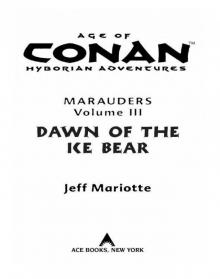 Dawn of the Ice Bear
Dawn of the Ice Bear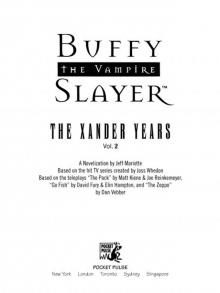 The Xander Years, Vol.2
The Xander Years, Vol.2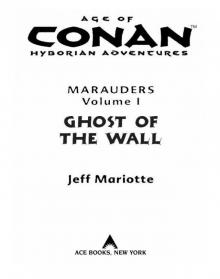 Ghost of the Wall
Ghost of the Wall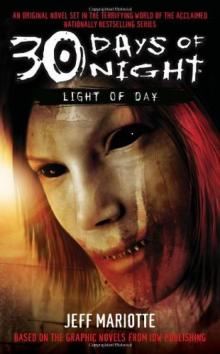 30 Days of Night: Light of Day
30 Days of Night: Light of Day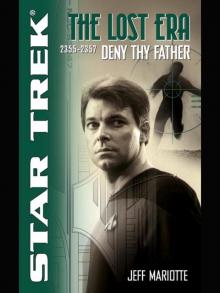 Deny Thy Father
Deny Thy Father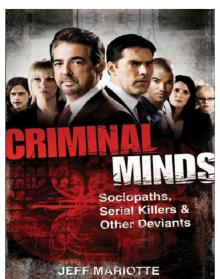 Criminal Minds
Criminal Minds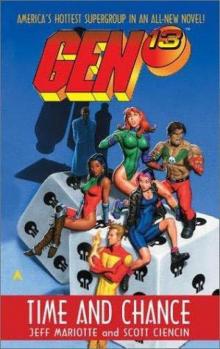 Time and Chance
Time and Chance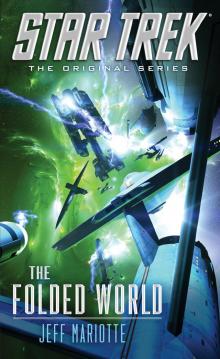 The Folded World
The Folded World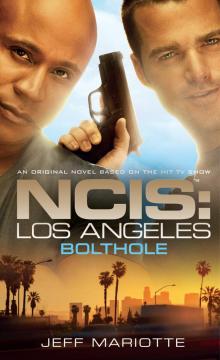 Bolthole
Bolthole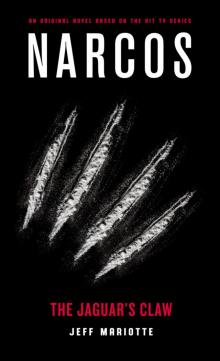 Narcos
Narcos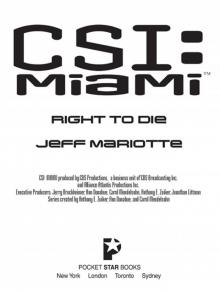 Right to Die
Right to Die